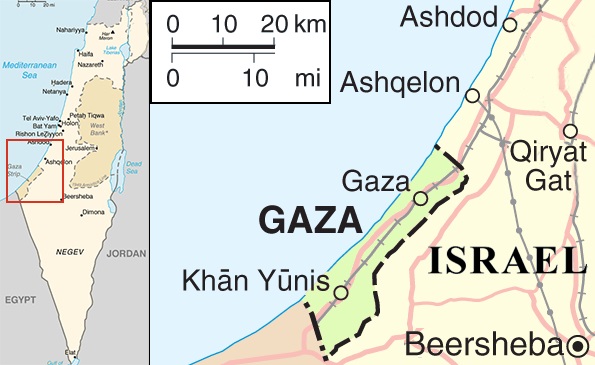In the intricate and deeply troubling dynamics of Gaza’s isolation, the European Union (EU) has played an integral yet underexamined role. Despite its stated mission of fostering peace and ensuring human rights, the EU’s involvement in the Rafah border arrangements has inadvertently empowered Israel to maintain a tight grip on Gaza’s access to the outside world. This is a sobering reality in 2024, as Gaza continues to face staggering levels of humanitarian crisis.
The Rafah Crossing and the Promise of Freedom
When the Agreement on Movement and Access was signed in November 2005, it was hailed as a historic breakthrough for Palestinians. For the first time, the Rafah crossing between Gaza and Egypt would ostensibly operate without direct Israeli control. This agreement, endorsed by the Middle East Quartet (the US, EU, Russia, and the UN), was intended to grant Palestinians a degree of autonomy and facilitate the movement of people and goods.
Condoleezza Rice, then-US Secretary of State, proclaimed that Palestinians would finally enjoy the freedom to "move, trade, and live ordinary lives." EU High Representative Javier Solana echoed this sentiment, celebrating it as a significant step towards Palestinian self-determination. But the lofty promises of 2005 quickly crumbled under the weight of geopolitical realities and the operational framework imposed by Israel and endorsed by the EU.
The EU’s Role as Third Party
Under the agreement, the EU’s Border Assistance Mission (EUBAM Rafah) was established to oversee the Rafah crossing. While the EU’s presence was supposed to ensure impartiality and transparency, its dependence on Israeli approval rendered it a proxy enforcer of Israel’s policies.
Israel maintained indirect control over Rafah by requiring that EU personnel be present for the crossing to open. The EU, in turn, deferred to Israeli demands, refusing to man the crossing whenever Israel objected. This effectively granted Israel a veto power over the movement of people and goods through Rafah, despite having no personnel physically stationed there.
The Blockade Intensifies
The situation deteriorated significantly after Hamas won the 2006 Palestinian legislative elections and subsequently took control of Gaza in 2007. Israel, deeming Hamas a terrorist organization, tightened its blockade on Gaza, restricting the flow of goods, services, and people. The Rafah crossing, already limited, became a focal point of contention.
From June 2006 onwards, the EU’s compliance with Israeli directives led to frequent closures of the Rafah crossing. By 2007, the crossing was largely shuttered, plunging Gaza into a dire humanitarian crisis. The EU’s deference to Israeli security concerns—often cited as justification for these closures—directly contradicted its stated goal of ensuring Palestinian freedom of movement.
A Proxy for Israeli Control
Critically, the agreement’s structure allowed Israel to monitor Rafah remotely through a liaison office equipped with closed-circuit cameras and data links. EU personnel not only complied with Israeli demands to close the crossing but also enforced restrictions on individuals deemed undesirable by Israel. For example, in December 2006, the EU closed Rafah at Israel’s request to prevent then-Palestinian Prime Minister Ismail Haniyeh from returning with funds.
This arrangement underscores the EU’s complicity in perpetuating Gaza’s isolation. By acting as an enabler of Israeli policies, the EU undermined its credibility as a neutral broker and contributed to the humanitarian toll on Gaza’s 2.3 million residents, the majority of whom are refugees.
Ongoing Consequences in 2024
Today, Gaza remains one of the most densely populated and impoverished places on Earth. The blockade, now in its 17th year, has crippled the local economy, decimated infrastructure, and left residents dependent on international aid. While Egypt occasionally opens Rafah for humanitarian purposes, the crossing’s role as a commercial gateway remains unrealized.
The EU continues to face criticism for its role in this crisis. Human rights organizations have called on the bloc to reassess its policies and exert pressure on Israel to lift the blockade. Yet, the EU’s reluctance to challenge Israeli and US positions has left little room for optimism.


